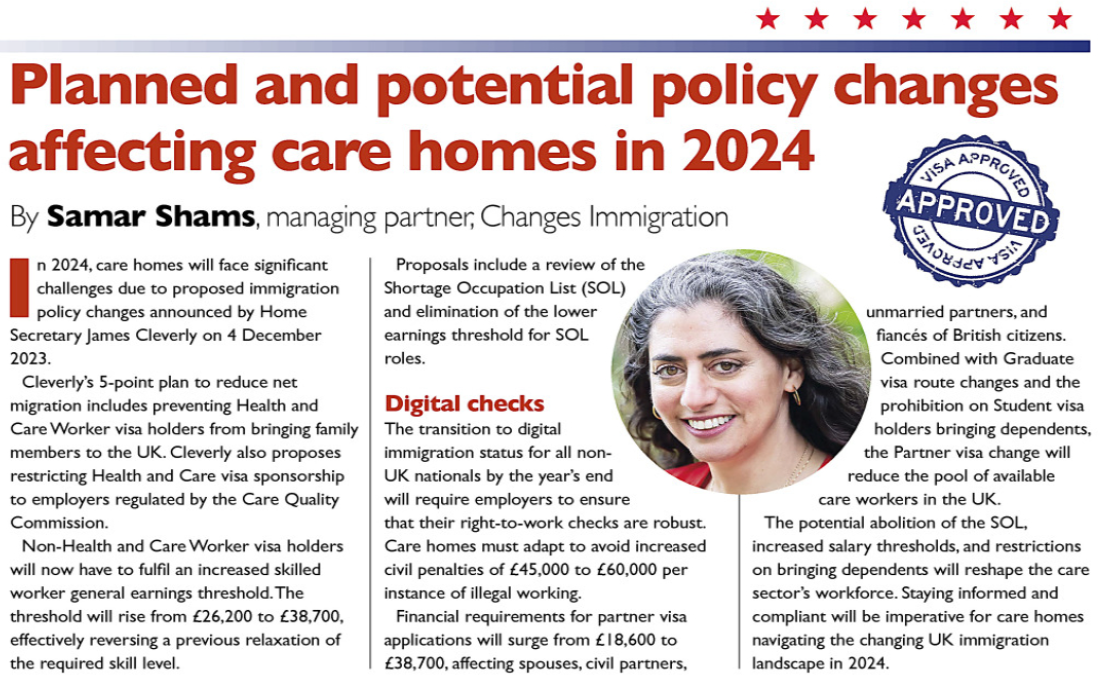The Home Office has introduced additional restrictions on sharing the costs of sponsorship with sponsored workers. While it is possible to share some immigration costs with the worker, sponsors must consider the relevant restrictions to maintain the ability to sponsor workers. In this article, we explain the changes and help you avoid falling foul of relevant sponsor duties, including salary level requirements.
Sponsors cannot pass on any sponsorship fees to sponsored workers
In an update to sponsor duties and compliance guidance published 31 December 2024, the Home Office confirms that sponsors are prohibited from passing on any sponsorship-related costs to sponsored workers, including sponsor licence application fees and Certificate of Sponsorship fees, as well as the Immigration Skills Charge. Prior to the 31 December 2024 update, sponsors were prohibited from passing on only the Immigration Skills Charge to sponsored workers.
The new guidance confirms that the Home Office will revoke a sponsor licence where a sponsor passes on sponsorship fees to a sponsored worker. Note that the revocation grounds apply equally where a sponsor arranges to recoup sponsorship fees from a sponsored worker.
What are the fees relating to sponsoring a worker?
Fees for sponsoring a worker can be divided into two components: sponsorship costs and visa costs.
The sponsorship costs include the sponsor licence application fee, the Certificate of Sponsorship fee and the Immigration Skills Charge. Employers may also opt for priority processing of a sponsor licence application for an additional fee.
The main visa costs are the application fee and Immigration Health Surcharge. Additional fees at the visa stage may include a fee for priority processing of the visa application, biometrics appointment fees and transaction and exchange fees.
Any costs borne by the worker must not be linked to their salary
Sponsors can agree with a worker that the worker will bear the visa stage fees, but any such agreement must be totally separate to the salary.
Sponsors will be familiar with the strict salary requirements that apply when sponsoring non-UK nationals to work. The salary figure listed on a Certificate of Sponsorship must reflect the basic gross pay. Some allowances can be included for Senior or Specialist Workers. The salary figure on the COS cannot include other costs borne by the employer, e.g. application costs.
The Home Office considers ‘clawing back’ of visa costs from a sponsored worker’s salary to reduce the basic gross salary. A sponsor seeking to share the burden of application costs with workers should have a written agreement in place making clear that any costs for which the worker is responsible are not taken from salary payments, either during employment or at termination.
Conclusion
Given the ongoing labour shortages, sponsorship of non-UK nationals remains an attractive option. However, employers must be prepared to bear the costs of sponsorship. While visa application fees may be shared with workers, any agreement must ensure compliance with sponsor obligations and avoid affecting salary levels.
If you have any questions on or your organisation needs help in drafting the relevant agreements, please get in touch.







